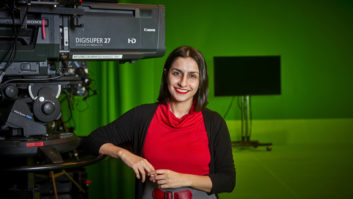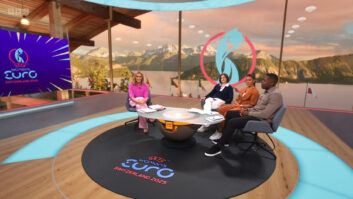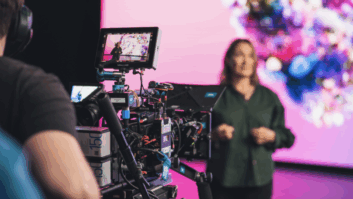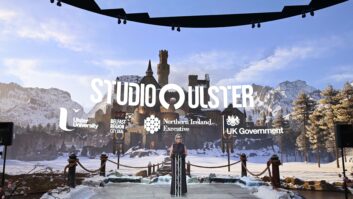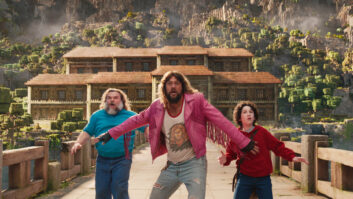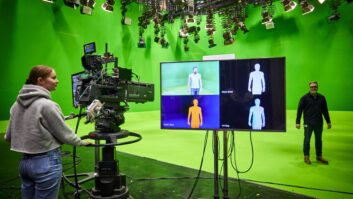Katie Bayman, junior virtual studio developer, dock10
Talk us through an average day in your role.
Each day is very different. I started at dock10 in September, and am still very much at the training stage, learning about how everything works here. Most of the training comes from working on specific projects. I have been working on my own virtual studio project which will hopefully go into production in May next year. I also work on multiple other virtual productions, helping to fix things or to alter virtual environments. We had a production in the other week that I helped to model a few items on, and it was really rewarding to see the final, completed set when they filmed in the big green screen studio.
How did you get started in the media industry?
This is my first job in the media industry, and I found out about it on LinkedIn. I studied animation at Salford University, which was very good at helping us find ways into the industry. Our head lecturer, Annabeth Robinson, would always tell us to apply for everything – even if we don’t have all the qualifications that recruiters are looking for because they might create a role for you when they see your application. That is how I got this job. dock10 was looking for a mid-level environmental artist with two to three years of experience. I applied, and a week later I was invited in for an interview.
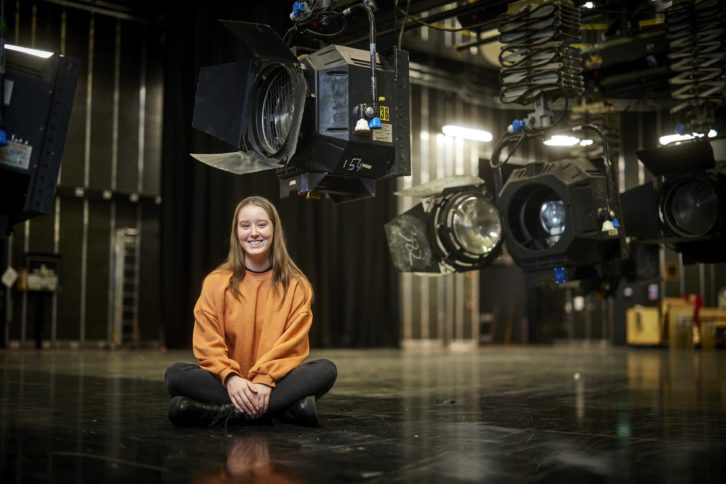
What training did you have before entering the industry?
I initially studied aeronautical engineering at university, but changed to animation as it’s what I had always wanted to do since I was little. In my first year, we explored the medium broadly – I learned 3D and 2D animation, from scripting and storyboarding all the way to post production. In the second year, we started to specialise – and I went down the 3D route. I really enjoyed 3D modelling, and in my third year I specialised entirely in 3D modelling and environments.
Why do you enjoy working in the industry?
I love working in the industry because every day I’m making something new and learning different things. You never do the same thing twice. And I really like 3D modelling and love the fact that I am doing something I enjoy. In my spare time, whenever I watch films or TV shows, I like to analyse how the environments have been created!
What piece of advice would you offer someone looking to explore a role similar to yours?
If you want to be a 3D modeller and environment artist, you shouldn’t limit yourself to one skill. As a junior, a company will want you to help on a whole range of things, from UV mapping to 3D textures. So, when you’re at university, you need to make yourself the most broadly skilled person possible – even if you only know the basics of those skills. If you can tell employers that you can use different software like Unreal Engine, Maya and Blender, you are much more interesting to them than people who can only use one software.
